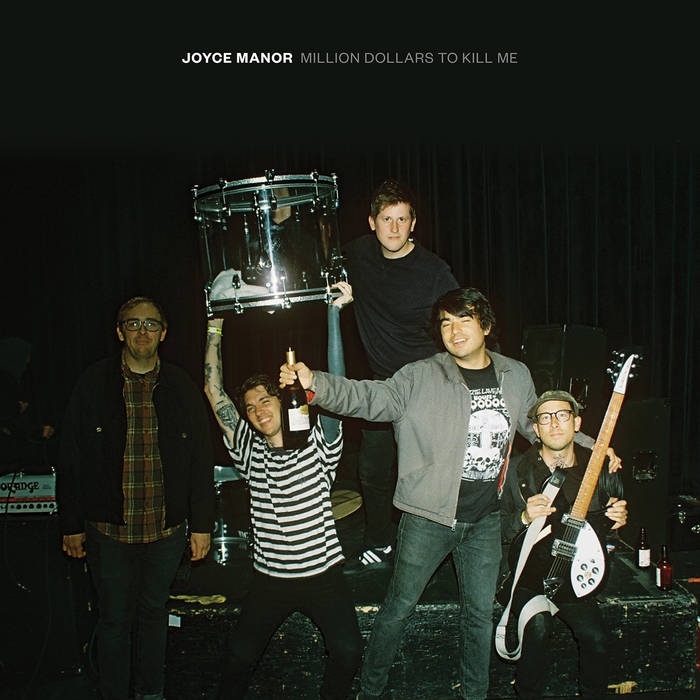Joyce Manor matures and mellows out in ‘Million Dollars to Kill Me’
October 17, 2018
Joyce Manor has returned with their fifth studio album, Million Dollars to Kill Me. In typical Joyce Manor fashion, the album clocks in at roughly 22 minutes. Despite continuing their tradition of creating notoriously short albums, the band ventures out to a more mellow sound following their 2016 album Cody. Vocalist and guitarist Barry Johnson, guitarist Chase Knobbe, bassist Matt Ebert and drummer Pat Ware come together to reveal a more vulnerable side to Joyce Manor with frank lyrics and simple yet compelling instrumentation.
Million Dollars to Kill Me is the beginning of Joyce Manor’s departure from their previous style. Joyce Manor heavily relied on bold choruses, heavy guitar riffs, hostile pseudo-screaming, along with dejected, straightforward, sometimes quirky, lyrics. Their overall style captured the spirit of the feeling of frustration and angst of being young. It’s evident that Joyce Manor’s music has grown and matured as they have, but this album truly marks their transition from the frustration of youth to the melancholy of adulthood.
The album starts out with the gritty “Fighting Kangaroo.” Right away, “Fighting Kangaroo” sets listeners’ expectations for an album about the clash between the painful memories of the past and the bleak reality of the present as Johnson forcefully questions, “And is it true you knew I’d miss you/Back when we were little kids.” Joyce Manor continues to dig deeper into the past with “Think I’m Still In Love With You.” The track deals with the struggle of longing for the people and happiness in the past and the inability to move on from it.
The third track, “Big Lie,” is one of the best tracks on the album because of the haunting guitar melodies and Johnson’s raw vocals. Additionally, the lyrics portrays the frustration of the disconnection between what people present to the world and how they really feel: “Everybody thinks I’m joking/If it’s funny then hold me while I cry all night.” The track also functions as a signal for the album’s progression to more mature lyrics and instrumentation.
Another standout track includes “Silly Games.” The track ventures to a gentler side of Joyce Manor and provides a unique composition compared to the rest of the album. The track lays Johnson’s soft vocals over sweet piano melodies, chimes and wistful humming to create a nostalgic, dream-like sound.
The most disappointing track in the album is “Friends We Met Online.” While the track is a faster-paced one, the stale instrumentation and Johnson’s apathetic vocals account for the lack of the punch that is typically present in Joyce Manor’s music. Additionally, the lyrics are supposed to be a sentimental recollection of finding the internet as a place to turn to during painful times, but it just ends up sounding awkward: “You and I were members of the same online community/I know that it sounds kinda lame when I say it out loud.” The lyrics miss the humor and sincerity that Joyce Manor typically reaches with such candid lyrics.
After the trainwreck of “Friends We Met Online,” Joyce Manor more than makes up for it with “Gone Tomorrow” and “Wildflowers.” Both of the tracks are slower-paced, sorrowful and demonstrate Joyce Manor’s growth as artists. The serene vocals and gentle guitar riffs are a far cry from their past hits like their 2011 track “Constant Headache” but they still capture their signature dejected feel.
With Million Dollars to Kill Me, Joyce Manor acknowledges that they are no longer young and reckless and they show it with their more mature style. The entire album is a recognition of all the joy and pain from the past that still haunts the present and it feels as if Joyce Manor is accepting the past in order to look forward to their future progression.
Link to photo – https://joycemanor.bandcamp.com/




